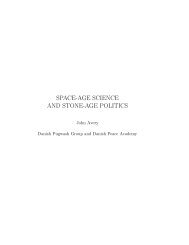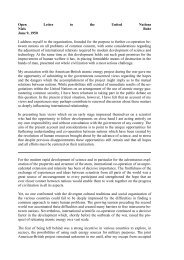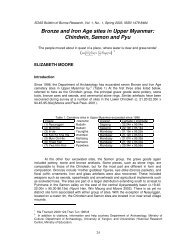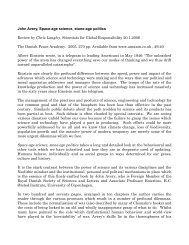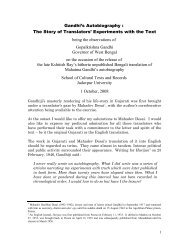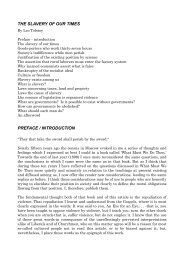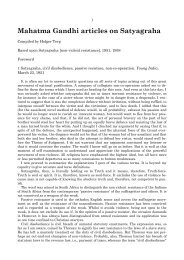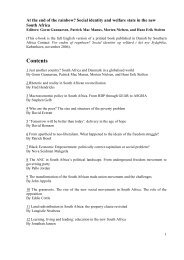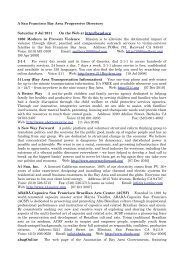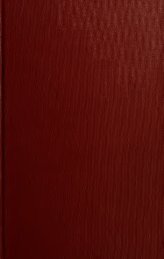Untitled
Untitled
Untitled
Create successful ePaper yourself
Turn your PDF publications into a flip-book with our unique Google optimized e-Paper software.
26 U. S. AND EXPANSION OF LAW BETWEEN NATIONS<br />
ing almost all Europe in war, shows that the cause of dispute in<br />
this case was of a very different character from the cause of<br />
difference in the Alabama claims and Bering Sea fur seal<br />
cases. 37<br />
In the latter two cases which were both submitted and<br />
argued at the bar of and decided, according to the Law of<br />
Nations and the evidence submitted, by international tribunals<br />
appointed ad hoc, the political prestige and development of the<br />
litigant nations were not at stake. For, in favor of whichever<br />
nation, in those two cases, the court might decide, the judgment<br />
would not hamper nor menace the future political power of the<br />
loser. As a matter of fact the United States of America won<br />
the first case; Great Britain the second. And neither power for<br />
a day interrupted, because of either of those decisions, the even<br />
tenor of their political development.<br />
But in the intermixed rivalry of the various powers of<br />
Europe, which finally broke out into war last year between<br />
Austria-Hungary and Serbia in the first instance, the political<br />
force and future development of the great powers were so interwoven<br />
that it was useless to hope that such a contest could be<br />
permanently settled by an international tribunal, whether such<br />
a court were constituted ad hoc according to the provision made<br />
by the First and Second Hague Peace Conferences, or whether<br />
there had existed a Supreme Court of the Nations always in<br />
being and composed of a small number of judges appointed for<br />
life, a dozen or fifteen in number. For no judicial tribunal<br />
could have decided which group of powers in Europe was the<br />
stronger and entitled to the hegemony in the affairs of Europe<br />
and the old world generally, which meant the power to control<br />
a large part of the commerce of the world to its own advantage.<br />
The same thing was true in 1870-71 on a smaller scale in the<br />
contest between France and Germany, for the Franco-Prussian<br />
war likewise was a contest to determine which was the stronger,<br />
in shaping the policies of the European powers, France or Ger-<br />
many. In both the Alabama claims and the Bering Sea fur<br />
" Thomas Willing Balch : Differends Juridiques et Politiques dans les<br />
Rapports des Nations, Revue Generate de Droit International Public, Paris,<br />
1914, PP. 137-182.



